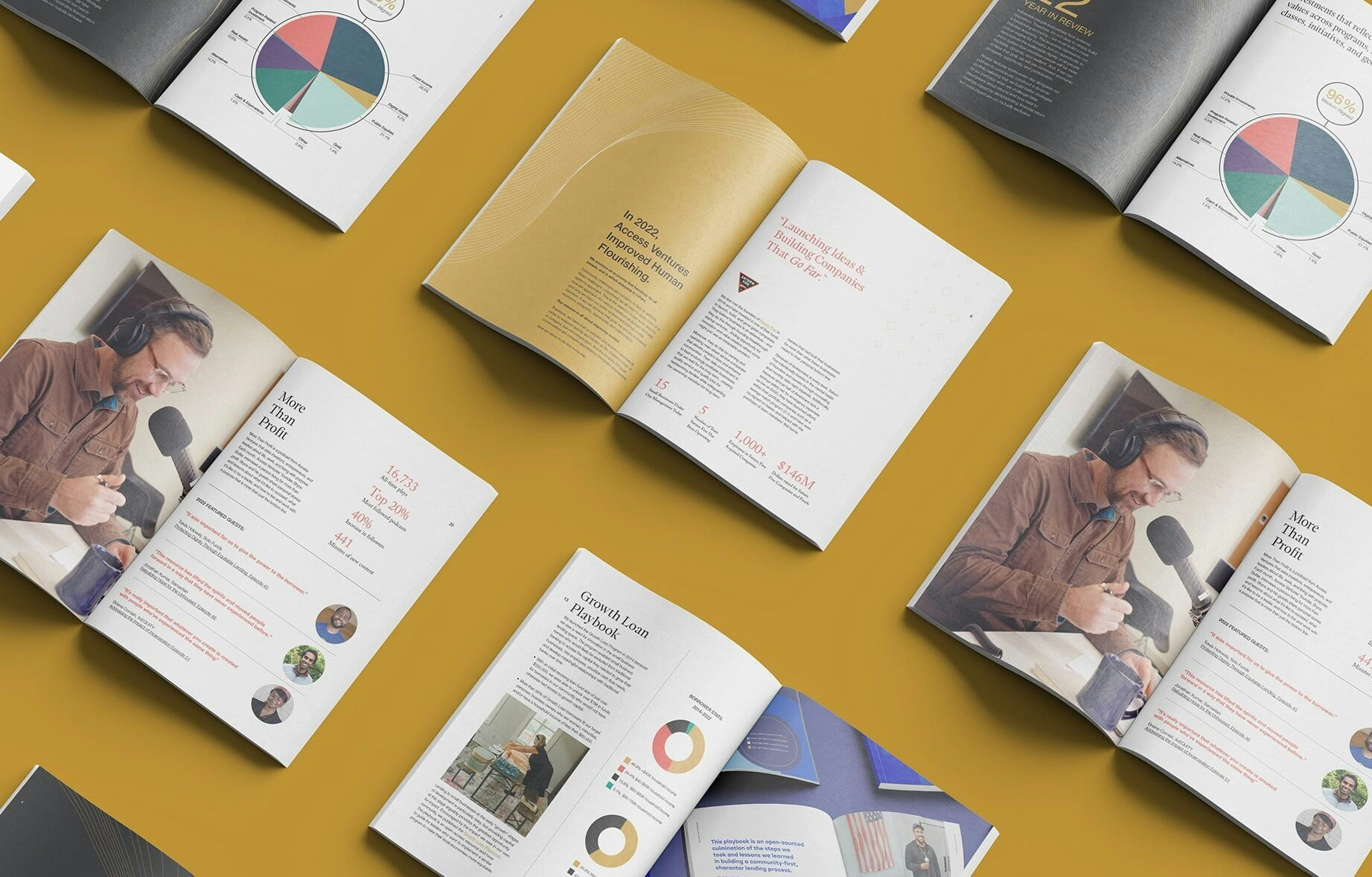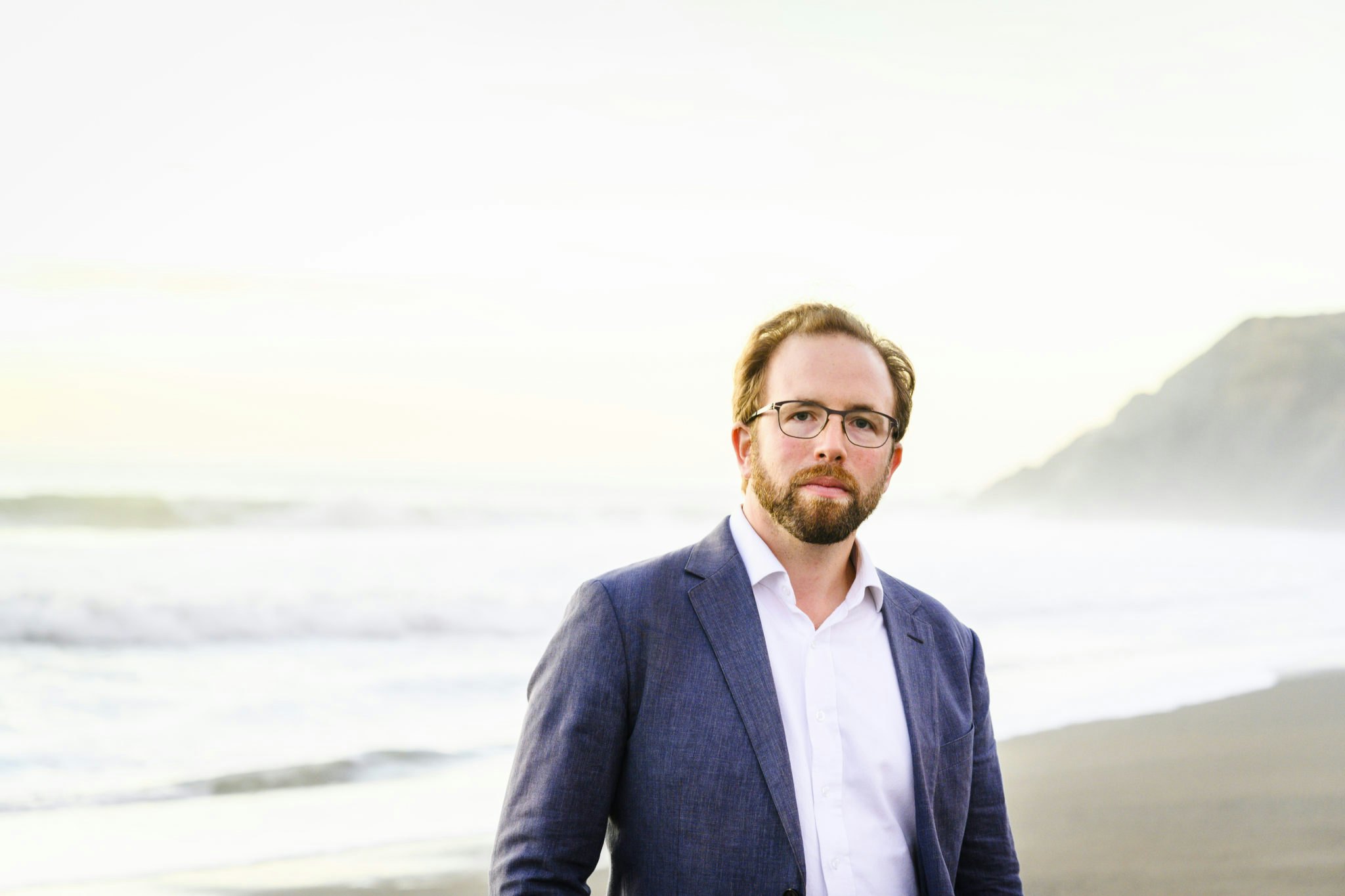Five Questions: Jay Lipman
At Access Ventures, we strive for 100% mission alignment across all of our investments, including our public portfolio. But how can we know what we are investing in and whether or not it actually aligns or hurts our mission? Is it possible to filter your investments based on your values?
The process of creating a public market portfolio which aligns with your values is certainly a labor of love. When Access Ventures first began the process of becoming a one-pocket investor, we lamented not having custom index options. Then we came across Ethic and immediately understood the value they hoped to provide.
In this Five Questions video we talked with Jay Lipman, co-founder and president of Ethic, about sustainable investing, communicating impact, and advice for impact-minded entrepreneurs. Watch the video below to learn more about how Jay and the team at Ethic are changing the way the world invests.
What is Ethic?
Ethic is a technology-driven sustainable asset management platform that essentially enables personalization at scale. We take into consideration both a client’s sustainable criteria, what it is the prioritize from a sustainability and impact perspective, but also what they’re prioritizing from a financial perspective with regards to what market exposure they’re looking for. We do all of this using separately managed accounts of single-name equities that we construct in portfolios. Now, we do work exclusively through intermediaries, we do that because we like to partner with organizations like financial advisors, institutional investment consultants, and multi-family offices. So if someone if eager to use Ethic, we do recommend that they reach out to their financial advisor, if they have one, and we can work with them that way.
What makes Ethic different from traditional investment platforms?
There’s two primary differences, one is true personalization. Not just on a financial basis, personalization on what it is that you believe and that’s to your values. What is it that you prioritize? Is it climate? Is it human rights? Is it equality? And then actually creating a mechanism for applying that version of impact, that version of sustainability, across your entire passive portfolio. That personalization at scale, through technology, has proved to be a real differentiator for us because we work with intermediaries that may not be experts in carbon intensity, they may not be experts water intensity or human rights or labor sourcing or weapons or tobacco. You know, they may not know how to have that conversation confidently with their clients but their clients want to have that conversation. So the uniqueness of that platform is that we enable that intermediary to feel confident in having that conversation and to actually scope that version of sustainability with their client confidently and that way build the relationship.
“Ethic is a technology-driven sustainable asset management platform.”
And then finally the usability. We have spent a lot of time working with our clients to understand what it is they want from their platform and how they would actually use it. Because you can create the smartest technology in the world but if it’s too complex or visually confusing, no one will log in and want to use it. So the simplicity of it, the ability to make complex information easy to understand has been one of the big triumphs, that I can take zero credit for, but our team has spent a lot of time focusing on.

What advice would you give to entrepreneurs who want to start an impact-minded business?
Raising money for an impact venture is really hard and the reason it’s really hard is that you have to go into an investment meeting with venture capitalists or angel investors and you have to sell them on why this is going to be a viable business and how this is going to have impact. You need to find the balance between the two. If you only talk about the business, how there’s money to be made and how it’s a big opportunity, you sound like a mercenary and you don’t sound like you’re prioritizing the impact. But if you don’t talk about the business side and only talk about the impact, then investors, whose responsibility from a fiduciary perspective is actually to insure that their investor’s money has a return. They are not going to be as comfortable that you’re focusing enough of it on the business side of it. So striking a balance to make them feel confident that you are focused on making this a viable business that will be self-supporting and will actually scale because there is demand for it and there is a business case and there’s margin to be made. But also recognizing that through that scale you’re going to achieve impact and recognizing that balance is really important. It’s something that took us a long time to realize because we focused a lot on the impact but, you know, eventually for us it was saying “Look, there is a business case here, a significant one. But at the same time as we scale the business, the impact scales.” So that is a really significant balancing act.
What are some misconceptions that advisors and investors have when considering a shift to a sustainable portfolio?
So we deal constantly with misconceptions. The biggest misconception is “How is this going to cost my clients performance? How is sustainable investing going to drag on performance in the long term?” Well, you know, it’s not us saying that it won’t, it is now years of academic research. It is years of the largest asset managers saying that they have seen that this is not the case. And it is years of investors actually recognizing by introducing it into their portfolio that they have not necessarily seen a drag on performance. Now, I’m not coming in and saying that we’re guaranteeing any returns, nothing of that nature, but I’m saying that the misconception that this is going to cost clients from a performance perspective is quite tangibly been debunked as a myth.
The next myth we deal with is, “Is there actually a product suite? Is there actually investments out there that can match what my client cares about?” Because, you know, you’re going to have some clients, not you, but an advisor is going to have some clients that only care about animal rights. They’re going to have some clients that only care about equality and only care about climate. Then there’s going to be clients that have a broad view–want a clean portfolio. Is there even investment products that can replicate the idiosyncrasies of each of those clients. That’s why personalization is so important, because it’s not a one-size fits all industry anymore–it can’t be. Because you can’t have a client come in and say they care about carbon intensity, water intensity, weapons, tobacco, and gender equality; and then give them something off the shelf and have them feel like it’s actually going to fit their values. It just doesn’t work. So having it be customized, having it be personalized is really important. But also maintaining that financial exposure they already have is a really important component.

How do you think about communicating impact?
One of the most important parts of the conversation that our clients, who are advisors, have with their clients, who are the end investors, is “How much impact are you having because of the decision you’ve made to move your portfolio to a sustainable portfolio?” So actually communicating that impact in language they understand has been a huge win for us because it’s empowered advisors to sit with their client every quarter and every year and say, “Look because you’ve moved to a low carbon strategy, you’ve taken the equivalent, or the exposure, of three thousand pounds or three millions pounds of coal out of your portfolio. Or you’ve taken the equivalent of a million miles of driving off the road, and by giving people that impact in tangible metrics that they can actually visualize and understand. So, “Well I drove 100,000 miles last year, but I’ve taken the equivalent of a million miles off the road.” You know, it enables them to go back to their family and say, “This is something that we’ve done with our family portfolio or our family foundation.” And that’s been really powerful.
You can check out our photo story on Ethic here and watch the rest of our videos from this series here.



